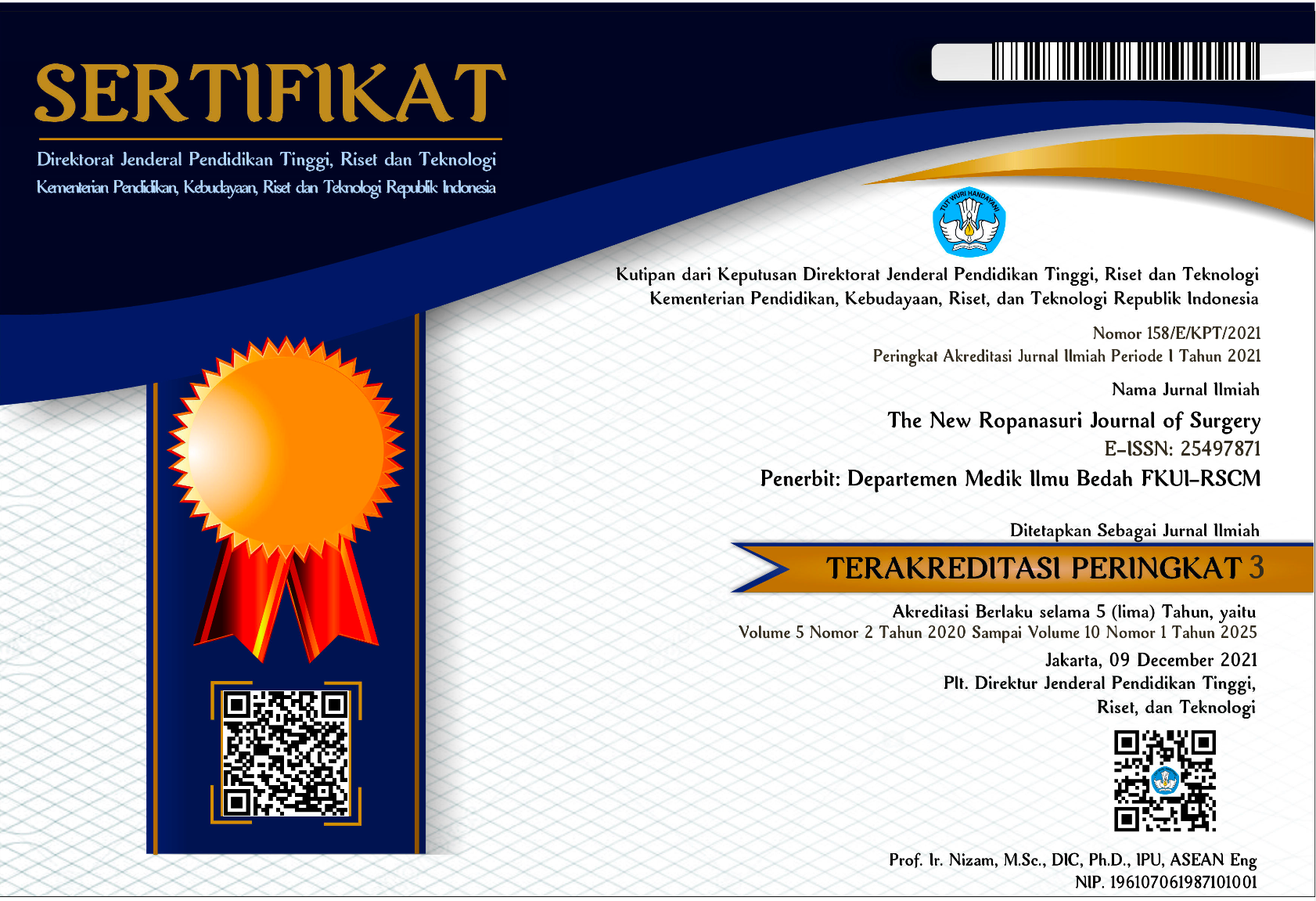Abstract
Introduction. Chronic rejection, a complication after pediatric living donor liver transplantation (LDLT), is challenging to treat as management generally requires retransplantation. However, retransplantation is avoided because of rejection risks, longer operating time, higher mortality, and lower survival rates. Immunosuppressant therapy has potential as an option for nonsurgical treatment. Everolimus, a mammalian target of rapamycin inhibitors (mTOR inhibitors), is a well-known immunosuppressant in treating chronic rejection of LDLT. However, studies in the pediatric field remain minimum.
Method. The discussion was based on evidence found from studies found through a systematic literature search. These three studies showed permanent liver function improvement after LDLT on immunosuppressant therapy without Everolimus. Liver function and fibrosis stability improved without mortalities. Differences in Everolimus’ efficacy in improving liver function due to the lack of facility to control Everolimus level in the blood resulted in overwhelming infection due to over-immunosuppression of this drug since Everolimus has a narrow therapeutic range.
Conclusion. The administration of Everolimus pediatric after living donor liver transplantation reduces ALT and AST levels and improves fibrosis stability.
Recommended Citation
Puruboyo, Adi ND; Rahayatri, Tri H.; and Stephanie, Marini
(2023)
"Effect of Everolimus on the Liver Function of Children Receiving Liver Transplant with Chronic Rejection: An Evidence–Based Case Report,"
The New Ropanasuri Journal of Surgery: Vol. 8:
No.
2, Article 6.
DOI: 10.7454/nrjs.v8i2.1146
Available at:
https://scholarhub.ui.ac.id/nrjs/vol8/iss2/6













